
Rest on Every Side
I am writing today more than a little exhausted. We arrived home two days ago after being away from home for the better part of three weeks. That day I had gotten three girls on an airplane, managed to not lose any of them for a couple of hours in our second of three airports, onto a second airplane, onto a shuttle and finally into our car. We arrived home and in the midst of unpacking multiple suitcases my eight-year-old daughter started to freak out. “There are bugs on me! They’re so itchy!” I was expecting to find her being dramatic, but she was reacting reasonably. She was covered in fleas. Soon, all four of us began noticing tiny black bugs hopping on our feet. Someone came to do a few things in our home while we were gone and found out later that the dog they had brought with them had fleas. I have spent the last 48 hours on the phone with pest control, searching for flea carpet spray, using said spray multiple times, and doing over ten loads of laundry. And tomorrow? That eight year old turns nine, so there is a cake to bake, presents to wrap, decorations to display, and a party to host. All of this on my own, no spouse to share the load. I am tired, I am weary, I am overwhelmed. I am not alone.
Rest is a common topic in the Bible. I have been thinking about it a lot lately, even before this weekend, as I read through Israel’s journey to becoming a nation and then its subsequent years as a kingdom. Over and over again the Biblical authors talk about Israel having rest on all sides. The Hebrew word used in many of these instances is ”nûah,” and is simply translated as “rest.” Nûah is used in the Old Testament at least eight times as a promise and at least ten times as a fulfillment of that promise. It is used in the giving of the ten commandments in Exodus to describe what God did on the seventh day of creation and in Deuteronomy’s account of the commandments to explain that by the Israelites resting on Sabbath, their slaves “may rest as you do.” In Deuteronomy and Joshua the Lord promises to give Israel rest. Then, in the historical books of the kings, God promises to give Israel rest from their enemies through leaders like David and Solomon. As we continue through Israel’s story we see the fulfillment of God’s promised rest as the reigns of Asa and Jehosaphat are described as “the LORD gave them rest on every side.”

Already Declared Worthy
I finished zipping my suitcase and paused at my dresser, carefully removing the gold necklace from the hook and fastening it around my neck. I needed to hurry, but this was important. With one last glance in the mirror, I grabbed the suitcase and left the room, feeling more prepared for what lay ahead.
Lies had been whispering in my heart since the moment I awoke. I’d heard them before, but they seemed especially loud this morning as I ate a quick breakfast and double checked that my flight was on time. I’d been looking forward to this day for months but now that it was here, it was messing with my heart. I was about to leave for the airport to board a plane for a dear widowed friend’s wedding. I’d watched her love story unfold from the beginning, getting a front row seat to both the beauty and difficulty of love after loss. The lies in my head had nothing to do with my excitement for her - I was overjoyed and ready to celebrate.
The lies were about me:
“No one will ever love you.”
“You will always be alone.”
“You aren’t worthy of love.”
“Your singleness proves how unlovable you are.”
I’d stopped to put on the necklace because my vulnerable heart needed a tangible reminder of truth. Simply feeling the cool of the metal against my skin made me feel more prepared for the mental battle ahead. The necklace, a gift from the Songs in the Night Rebuild Retreat, had a simple crown etched into the small gold circle - a reminder of my true identity.

Come and Drink
My daughters and I are currently reading the 5th or 6th (depending on what order you read them in) installment of C.S. Lewis’s Chronicles of Narnia Series: The Silver Chair. A few nights ago, we read a scene that just about wrecked me because it was Scripture coming to life in this piece of fiction, as I am sure Lewis intended. A new character, Jill, is in the other world where Narnia resides for the first time and has been wandering in the woods for hours when she finally hears running water. As she approaches the stream, there is a lion (who we the reader understands to represent Jesus) blocking her way. Jill becomes so thirsty looking at the stream that she thinks drinking water would be worth getting eaten by the lion. Then, the lion speaks: “If you are thirsty, come and drink.” When she doesn’t come, the lion asks if she is thirsty and Jill responds, “I’m dying of thirst.” “’Then drink,’ said the Lion.”
We are Jill. We are thirsty, sometimes palpably so. The world promises to quench our thirst in so many ways. If we just achieve enough, make enough money, have good enough friends, find a romantic partner, then we will be satisfied. Maybe you are thirsty for the deeper desires of your heart: comfort or health or companionship. Or maybe you are like me, walking through life post some traumatic event or catastrophic loss. I am thirsty for a previous life, for a person I cannot have again. I am thirsty for a life that doesn’t continually feel like just putting one foot in front of the other to get through the day. I am thirsty for a life that is more than the fallout of tragedy. Perhaps you are even thirsty for hope again, for trust in the God you thought you knew. For God to show up in a new way, for you to feel like he is actually with you, for you to have more of God during a time when you have nothing else. We are thirsty, friends, and the Bible shows us we are not alone.

Can We Skip to the Good Part?
It keeps getting stuck in my head: the catchy line that started a TikTok trend. Maybe you’ve seen these viral videos too: a mediocre image is quickly replaced by a drool-worthy montage of pictures as AJR sings, “Can we skip to the good part?” An exhausted pregnant woman is now glowing with a baby in her arms; a frustrated couple is instantaneously surrounded by joyous family and friends on their wedding day; a weary traveler now lounges beach side watching the sunset. The message is clear: this is the good part.
I must confess that I’ve watched more than a few of these TikToks, but now quickly scroll past them when they pop up on my phone. Contentment is hard in this season and watching someone’s hardship disappear in an instant doesn’t help. I know it’s just the work of masterful editing paired with catchy lyrics, yet it stirs up a longing deep in my heart. Oh to be able to skip the hard parts of life and get to the good!
Out of curiosity I recently searched for the lyrics to AJR’s “Skip to the Good Part.” Verse one says this:
“If you put this scene on a movie screen
Is it called a happy end?
If the world gets me
Where I’m supposed to be
Will I know I’ve made it then?
It’s so hard
Can we skip to the good part?”

Our Rescue Story
The story of king David is a well-known one. He slays a giant everyone else feared with a slingshot, is plucked from the fields where he cared for sheep to become king, is on the run from king Saul and later betrayed by his own son, sleeps with Bathsheba and kills her husband when she becomes pregnant, and mourns the loss of his best friend and his sons. He is cowardly and brave, grievously sinful and a man after God’s own heart. After the Lord saves him from Saul, David writes a song of thanksgiving to the God who had been with him throughout the tumults of his life. That song is recorded in 2 Samuel 22 and also becomes Psalm 18. This is what the author of 1 and 2 Samuel wanted Israel to know at the end of David’s life. David’s story is a rescue story and it’s our story as well.
In verses 4 and 5 David depicts a scene of destruction, captivity, and death. He is not just close to these things, he is wrapped around, entangled, and confronted by them. And so are we. So am I. My sin entangles me, its ropes pull me closer and closer to death. But, also, this broken world has wreaked destruction in my life. Death entered and stole from me earlier than I ever thought it would. I lost my husband, my parenting partner, the dreams and plans I had for the following decades of my life. In those months after Michael died, like David, I was terrified. I felt the “torrents of destruction” as I looked around and saw every aspect of my life and my daughters’ lives torn apart. It was not a slow and graceful change, it was a violent upheaval of all that was known and held dear. And even those who have not felt catastrophic loss as up close and personal as those of us who have lost a spouse, there is no missing how the ropes of sin, death, and brokenness entangle: mockery, betrayal, loneliness, anxiety, uncertainty. There is beauty in life and in the world, but there is also great darkness.

A New Season of Grief
I’ve entered into a new season of grief. The days when each breath felt like a fight for survival are long gone. Intense therapy, individual grief work, a loving community of widows, and the slow passing of time have worked together to allow the pain that once screamed to fade to a dull roar. It no longer hurts to breathe and I don’t feel nauseous when I eat. I don’t wake up each morning to the startling realization that my husband is gone and wonder how I will ever make it through the day.
As my friend and fellow widow Clarissa Moll says, grief is now my companion. Grief comes with me everywhere I go– showing up in the ordinary moments of laundry, dishes, and commuting to work, as well as the big moments of birthdays, holidays, and the turning of a calendar page. Grief is a thread that is woven throughout my days. It never goes away, yet only on occasion does it bring the depth of pain that it did at first.
For over two years after my husband’s death, life felt like a prolonged dismantling of all I knew. Every thread that we had woven together into the fabric of our life throughout two years of dating and 13 years of marriage was cut one by one until only pieces were left. My husband was gone and the threads that held us so tightly together were now severed. My identity, faith, and purpose were all stripped down to the core. I was no longer a wife and partner. I was no longer a caregiver or my husband’s support in ministry. Nearly everything I had used to define myself was gone.

In Pleasant Places
I started to memorize Psalm 16 in the spring or summer of 2020. I don’t really remember why I chose this particular Psalm. Maybe it was the closeness of the Lord in the verses, that he is a refuge, at my right hand, will not abandon, and in his presence is abundant joy. But there was something that drew me to it. Now, looking back, I can see the nudging of the Holy Spirit. That God, being eternal and outside of time, knew what was going to happen in September of that year and guided me to scripture that would really matter in the darkness. Specifically, verses five and six. I will admit, these verses made me angry at first. They were not what I wanted to hear, and they were hard to believe. I could know with my mind that they were true but trusting their words, and finding hope in them, was not something I wanted to do.
“Lord, you are my portion and my cup of blessing.” I did not want these words to be enough. I remember a moment when I was in the hospital after our accident and Michael’s death where I was staring at a ceiling tile, angrily talking with God. I told the Lord that while I knew having him was greater than having anything else, at that moment if I had the choice between having God and having Michael, I would choose Michael. So, for David to tell me in this Psalm that God is his portion, that having God was enough, only led me to frustration. I did not want God to be enough.

Finding Treasure
There is a cost to following Jesus.
I grew up in church and have been familiar with many of the Bible’s stories for quite some time. I knew following Jesus required stepping into great risk. Peter and Andrew laid down their nets, Jesus asked the rich young ruler to sell all he had, and Peter courageously stepped out of the boat.
Lay down your net. Sell everything. Step out of the boat. Follow me.
As a young child, I don’t remember feeling heaviness when I weighed the cost of following Jesus. In fact, the cost of discipleship has felt most painful in the aftermath of my husband’s death. How could I willingly lay down my net? How could I find courage to step out of the boat? Everything God asked me to hand over to Him, to release–to surrender– seemed to reveal something happening deep inside my soul. For some steps forward, following His path has reminded my body of the deepest grief it has ever known. In other situations, His path has revealed idols: productivity, position or pleasure–just to name a few. “All to Jesus, I surrender” became a much more difficult lyric to sing as God began to rebuild my life. Surrendering to God’s plan and His way forward has encompassed its own unique grief journey. The cost has even felt too great at times.
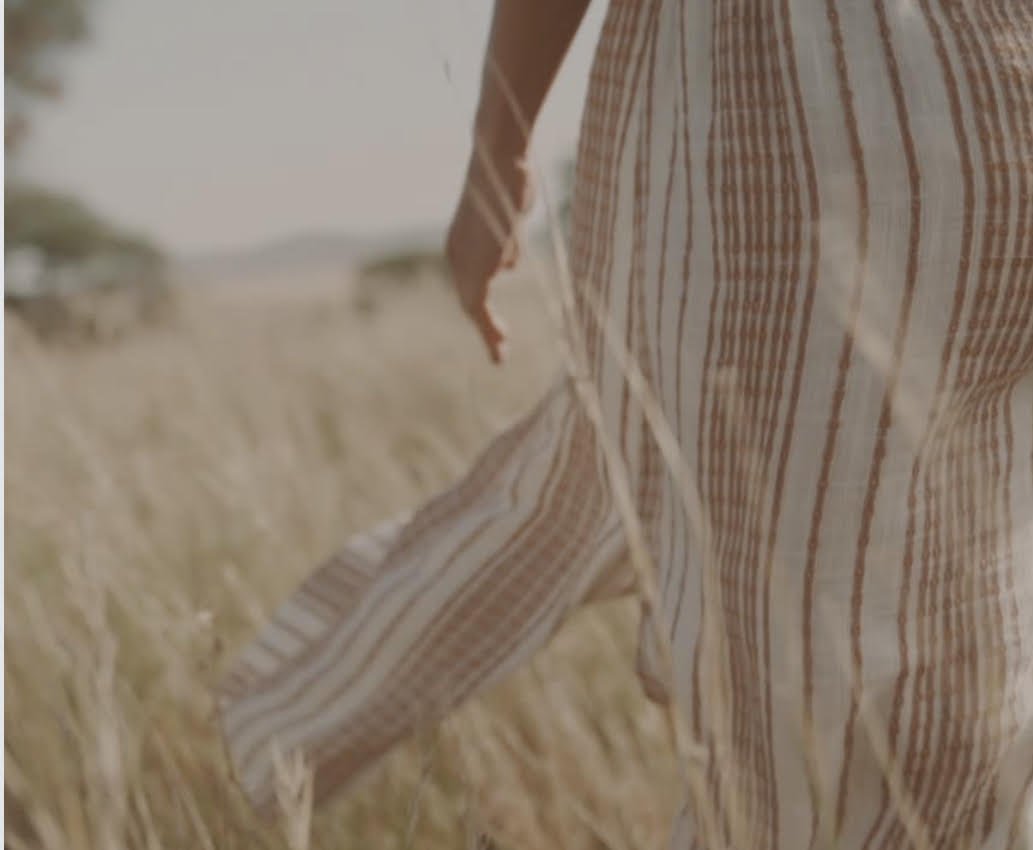
Glory in the ‘No’
When my husband died, it felt like my life shattered into a thousand tiny pieces. Like a beautiful crystal vase that is dropped by clumsy hands onto a hard and unyielding floor, the life I’d known was over and not coming back. The pieces were too fragmented to ever be restored. My life from that moment on would have to be something different. I would be someone different.
When life shatters, faith can shatter with it. So often, the death of a loved one begins the slow death of faith. Where trust may have been easy before, it now feels terrifying. Death seems to loom everywhere and new questions flit across our minds: Where was God? Why didn’t he stop it? Why would a good Heavenly Father allow something so horrible to take place? Does he even care? Who will he take from me next?

Only Jesus
This phrase echoes throughout my mind and sinks down into my heart recently; this phrase smothered between the idea, the thoughts, the pondering of the race we have been called to run here on earth, until our very last day, our very last breath.
“Let us run with endurance the race that is set before us, looking to Jesus, the founder and perfecter of our faith.” Hebrews 12:1-3
Life as I know it has come with a scope of experiences, emotions, circumstances, and thoughts that have all been rolled up and twirled around together. I have experienced in life some darkest of darks and some highest of highs.
God is gently refining my soul to see all that life is; all that this race has called us to endure can only be held through what He speaks to me now… “only Jesus.”
Every moment, every stride we take forward in this race is meant to be done side by side with Jesus. The next mile marker or our proximity to the finish line is not where He is asking us to place our gaze. No. On the contrary, He is asking us to fix our eyes on Him while attesting to the very fact that we are in a race of endurance until the very end.
The shifting of seasons is relentless, inevitably coming and blowing in like wind, holding only what was meant for us to endure at each stride. As each season blows in, as things shift and change, we can move through it. But how?

Growing in the Ordinary
I tend to want dull moments to be dismissed from my day. Much like a movie, I want to speed quickly through the brushing teeth moments and preparing meals moments. I want to focus on the parts of my day spent accomplishing rather than the mundane.
In the years of my deepest grief, this tendency was even more pronounced. Ordinary moments were incredibly painful. I desperately wanted to flee from the ordinary parts of the day. They held a deep sting because these were the times I used to be in the company of my late husband. I no longer brushed my teeth while sharing the sink. Sitting on the floor with my son no longer involved simultaneous adult conversation. I brewed morning coffee for only one now and laundry reminded me of those darn sweat-stained undershirts I never could keep bright white. The ordinary moments held constant reminders that my world had radically changed and it hurt.
Looking back over the years, I realize how much God has used ordinary moments to change me. The parts of the day where I engage in mindless or routine tasks are where I have been learning to pay attention to my grief, worry, doubt, anger, or fear. This is where I have cultivated habits over time that invite me to meet Jesus in ordinary moments.

Waiting to Bloom
So it is with this season of faith and grief. I often long for a sign that God is at work in my life. I long for evidence of growth and the unfolding of purpose that will make it obvious to myself and others that I did not lose my husband in vain. I desperately want to know that there has been purpose in this winter season of grief. I want new life to come and to come soon.
I look around me and see others blossoming. I rejoice with widowed friends who have found fresh purpose, an exciting ministry, or the gift of a new relationship with a godly man. I see signs of obvious blessing– fresh blossoms– and breathe a sigh of relief. The spring has come; their barren season is over. God’s goodness is on display.
As I look around, I also start to wonder– what about me, God? I long to rush through this dormant time and get to the beauty. Buds that grew some time ago look no different today than they did before. Where is the promised flower? Where is the beauty from my ashes? I am eager to spend less time digging roots down into the secret places in my soul. I want to blossom with new life and possibilities.
Yet, just as it is for the tree in my yard, blossoms that grow too soon are vulnerable. It is in waiting and patient endurance that the flower hidden inside of the bud is protected from the threat of frost. To rush the healing process and try to move forward into new places and new adventures before God has prepared me would be foolish. My timetable might look different, my blossoms may not yet be on display, but God is at work in this season of stillness. Life is at work even if my branches look barren.

Loneliness in the Season of Love
I tend to blame my loneliness on my husband’s death, thinking that the only reason I am lonely is because he isn’t here. But the hard truth is that I was often lonely before he died. Widowhood didn't cause my loneliness; it exacerbated it. The approach of Valentine’s Day only highlights the loneliness that has always been a part of my life.
I have come to see that there’s a loneliness - an “alone-ness”- inside all of us. There are places in our hearts and minds that no one, not even our spouse, can access. We have experiences that cannot be fully shared with others through words alone because there is a type of knowing that comes through experience and an un-knowing that comes from hearing about an experience second-hand.
While it’s likely that my story looks very different from yours, I wonder if you too have experienced this thread of loneliness. Loneliness has taken on different forms throughout my adult years, but it has always been there.

Be Still
We slow down a lot on Sundays in our home. Hayes and I were working on a big puzzle one particular Sunday afternoon. He is generally a talkative child, but this day he was extra chatty. In addition to all the talking, he was clinging to my side. I finally asked him if there was something on his mind and he exploded with relief that I asked. He couldn’t stop thinking about a scary rat we saw in a movie. He wanted so badly to stop thinking about it, but didn’t know how to make it stop. He thought that talking and playing would make it go away but it wasn’t working. When he stopped to work on a puzzle, slowing down made thinking about the rat worse.
Isn’t this true for all of us?
We believe that keeping our mind and body busy will make those things we don’t want to think about disappear. I certainly do not have all the answers here and won’t try to quickly and simply solve this deep and complex issue of our soul. The battle here is just not simple, but I do think it is helpful to name the struggle we all have, the struggle to eliminate hurry from our lives.
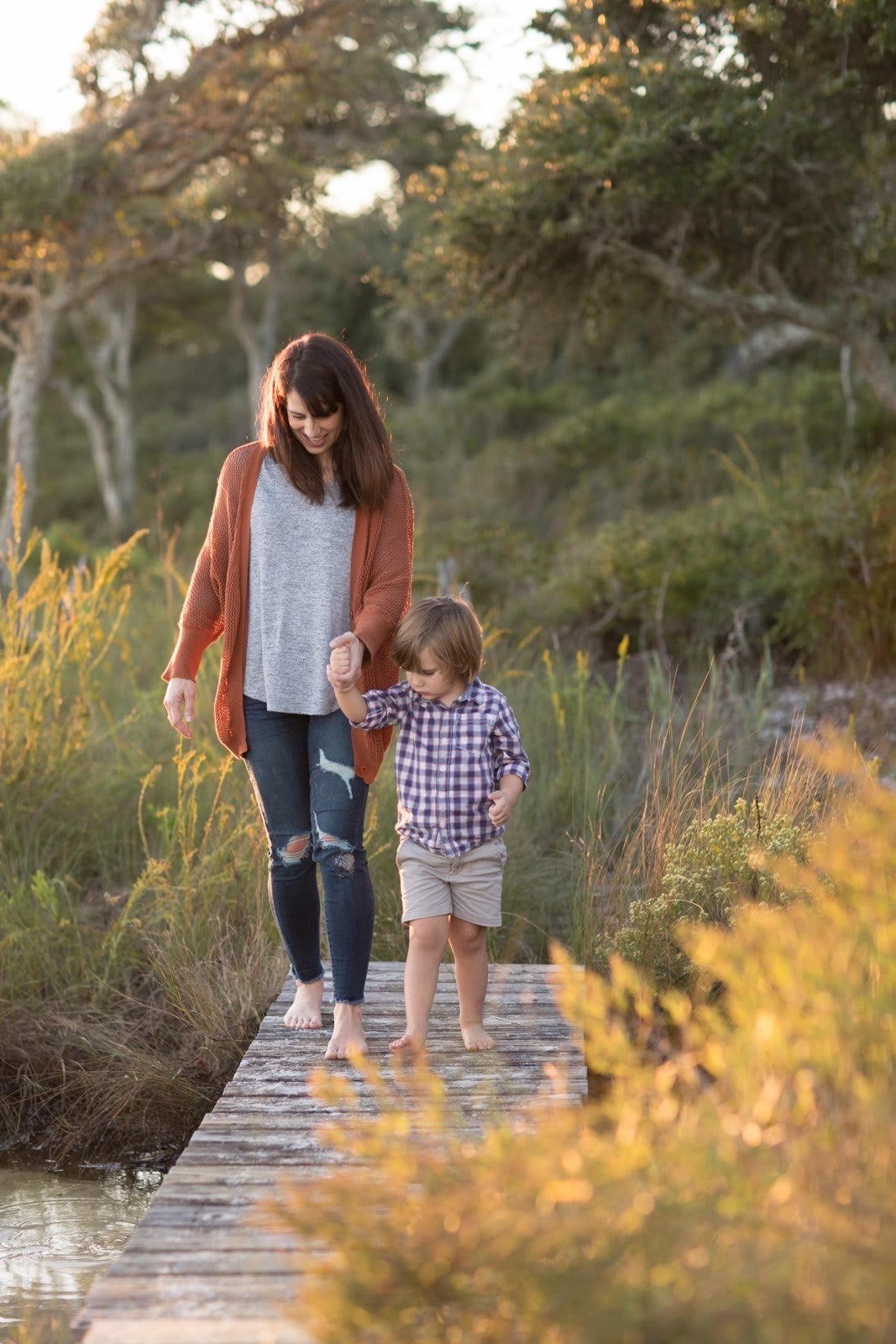
Courage for a New Story
"The heart of man plans his way, but the LORD establishes his steps." Proverbs 16:9
Planning
In complete honesty, this scripture has been tough for me in certain seasons. It has triggered something painful inside me. “Plans.” That’s the first word. Planning anything feels awful after significant loss. It doesn’t feel right to plan for quite some time.
Layers of healing began to take place and my heart began to dream again. Big dreams. Dreaming again is a good thing. It also ushered in another season where this scripture cut me deep. I mustered up enormous courage to dream and desire; then I came to grips with a reality that was tough to swallow. The LORD establishes my next steps. What will He reveal? What will He allow? What will He choose to protect me from seeing? Are the steps dangerous or safe? My many fears were highlighted. It was time to decide whether or not I would trust Him as shepherd in my valley.
A New Story
Over time I began to believe for myself that God wanted to write a new story for my body to experience. I believe it for you too. This new story requires courage. Courage to trust. Courage to wait. Courage to walk in step with the Spirit leading; not ahead of Him and not behind. Just as Moses didn’t want to step without the presence of God leading (Exodus 33), this becomes our greatest desire too.
Rebuilding trust in God is a completely normal experience post-trauma. It’s what I believe is most broken by the sin and heartache in our stories. Our deepest wounds are the lies we believe about God because of the experience we have walked through. The box we had God in may be dismantled, but that does not indicate that God is no longer loving, good, and worthy of being trusted. The same Gospel that is true on our best days is also true on our worst. God is a promise keeper. His Word is True. He is faithful and He is consistent.
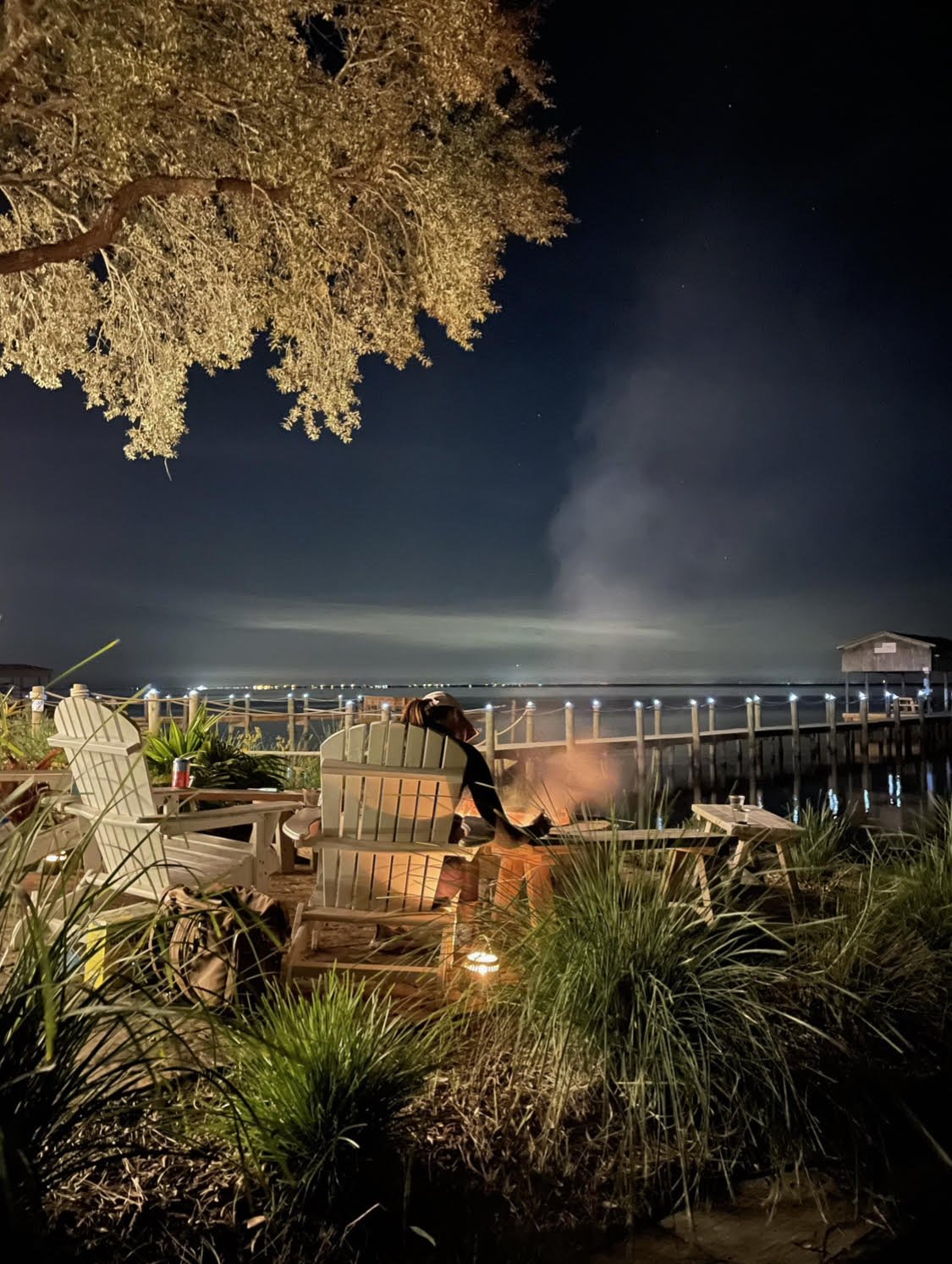
Soul Rest
If you think about it, it’s hard to trust a stranger, love them wholeheartedly, passionately follow them, learn from them, and be at rest in their presence. However, every moment spent getting to know Jesus is worth it.
Do you really know Him? Follow Him in the gospels? Watch and listen and worship? Do you really trust Him, even in the hard? The more we know and trust our Lord, the lighter our load becomes.
But how? We can cry and lament and lean into Jesus like never before. We can trust Him with every single thing that we are carrying and picture the tender look on His loving face as He eagerly takes our load and carries it for us–our broken hearts, grieving children, finances, fears, questions, anger, guilt, doubts, fragile hope, and facing a new year without our husbands–all of it–as we go about our days–not just on Sundays or when we have “quiet time.” Personally, I have formed a new habit when driving. If I am alone in the car, I don’t listen to music or podcasts as much as I used to. I enjoy the silence and solitude for a little bit, then offer up to the Lord everything I’m thinking and feeling–the good, bad and ugly–and find rest for my soul knowing that the Almighty sees me, hears me, loves me, forgives me and graciously carries my burdens. Consciously trusting Him with everything throughout my days has brought indescribable peace and assurance amidst the neverending busyness and demands of this new life, especially when physical rest is fleeting. And especially on the most grief filled days. The more I give to Him, the more peace and rest He gives to me.
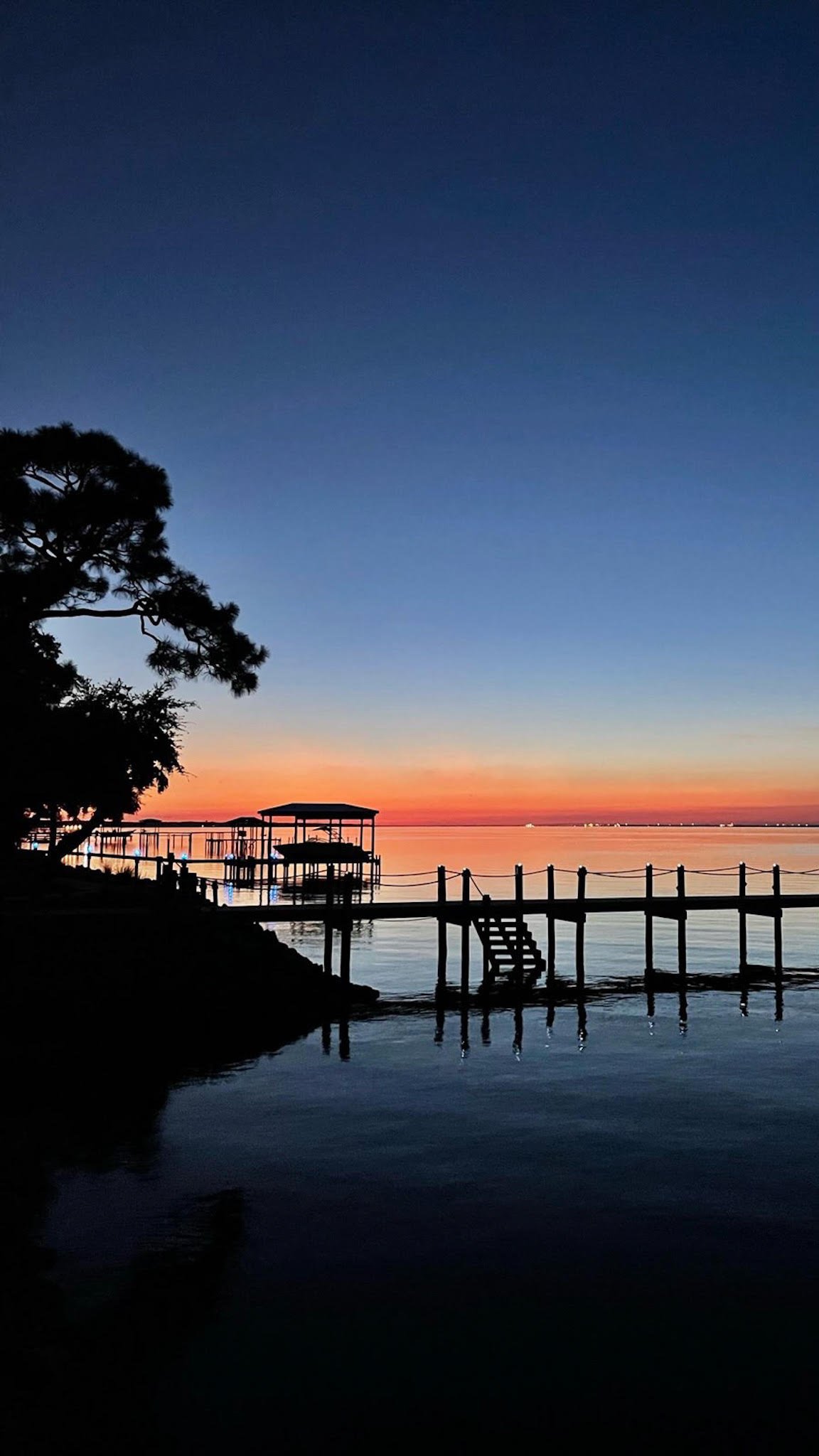
Path to Peace
As we approach the two year anniversary of my husband’s death, these questions have been replaying in my mind over and over again: What did we miss? Why didn’t the doctors warn us? If we had known what was happening, could we have saved his life?
Deep down inside, there’s a part of me that is still fighting against the loss of my husband. I know in my mind that he is gone, but in my heart I long to find a way to make it untrue. There’s almost this sense that if I could go back and understand what transpired, maybe I could undo it all.
My husband’s death made me realize how little control I have over my life or the lives of those I love. Since God is the sovereign one, I’ve asked Him over and over again: “How can this be your plan? Why didn’t you stop this? Why didn’t you prepare me? Why did you let my young son lose his wonderful father?”
In the face of devastating loss, it is hard to reconcile the love of God and the plans of God.

Fears Realized
“Fear not, for I am with you; be not dismayed, for I am your God; I will strengthen you, I will help you, I will uphold you with my righteous right hand.” Isaiah 41:10
“When we have lived the worst, when we have been at our weakest and our fears have been realized, we have the opportunity to experience Jesus profoundly. Living with the pain of loss and uncertainty removes a veil of arrogance that we often let cover Jesus's face. -Casey Martin (Joy of Every Longing Heart).
From early on in my relationship with my husband Joshua, my greatest fear was losing him. I thought, “I could lose everything else as long as I’m walking this road with him.” We talked about growing old together and I just hoped in the back of my mind that we would die together…Nicholas Sparks’ The Notebook style. The thought of losing Joshua was oftentimes paralyzing. And when he was diagnosed with cancer the fear became overwhelmingly real and I would catch myself not being able to breathe.
Then my fears were realized. On January 18th, my greatest fear had come to be and I was faced with the reality of life without my amazing husband. My world had shattered.
But God.
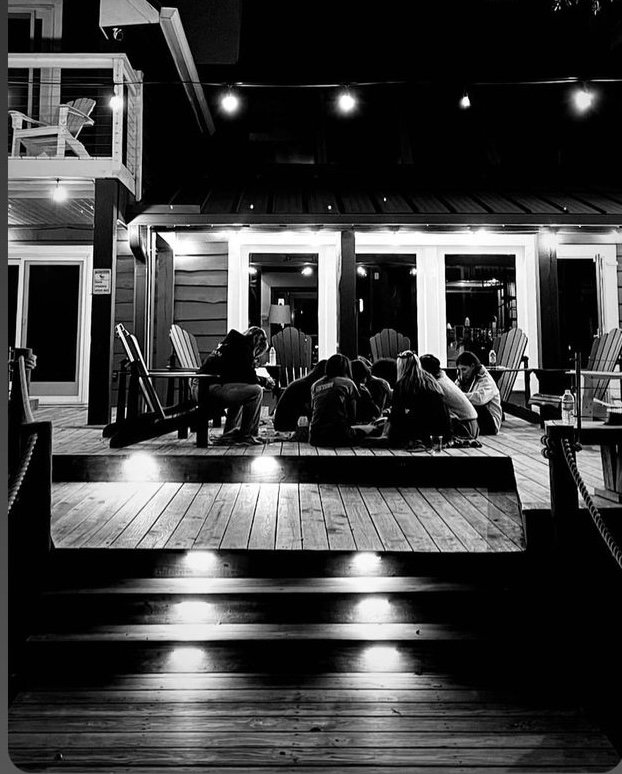
The Humble Christ
“Down in a lowly manger, the humble Christ was born.”
I've often wondered why the Gospel message became much more powerful, palpable, and fresh in widowhood. Why didn't my pastor’s words always resonate incredibly deep in my soul on Sunday morning? Why didn't I always devour scripture or feel my eyes well up with tears singing of the goodness of God? As I have pondered the humble birth of Christ this Christmas, I have more clarity on something that could explain these experiences. Humility has an invitation.
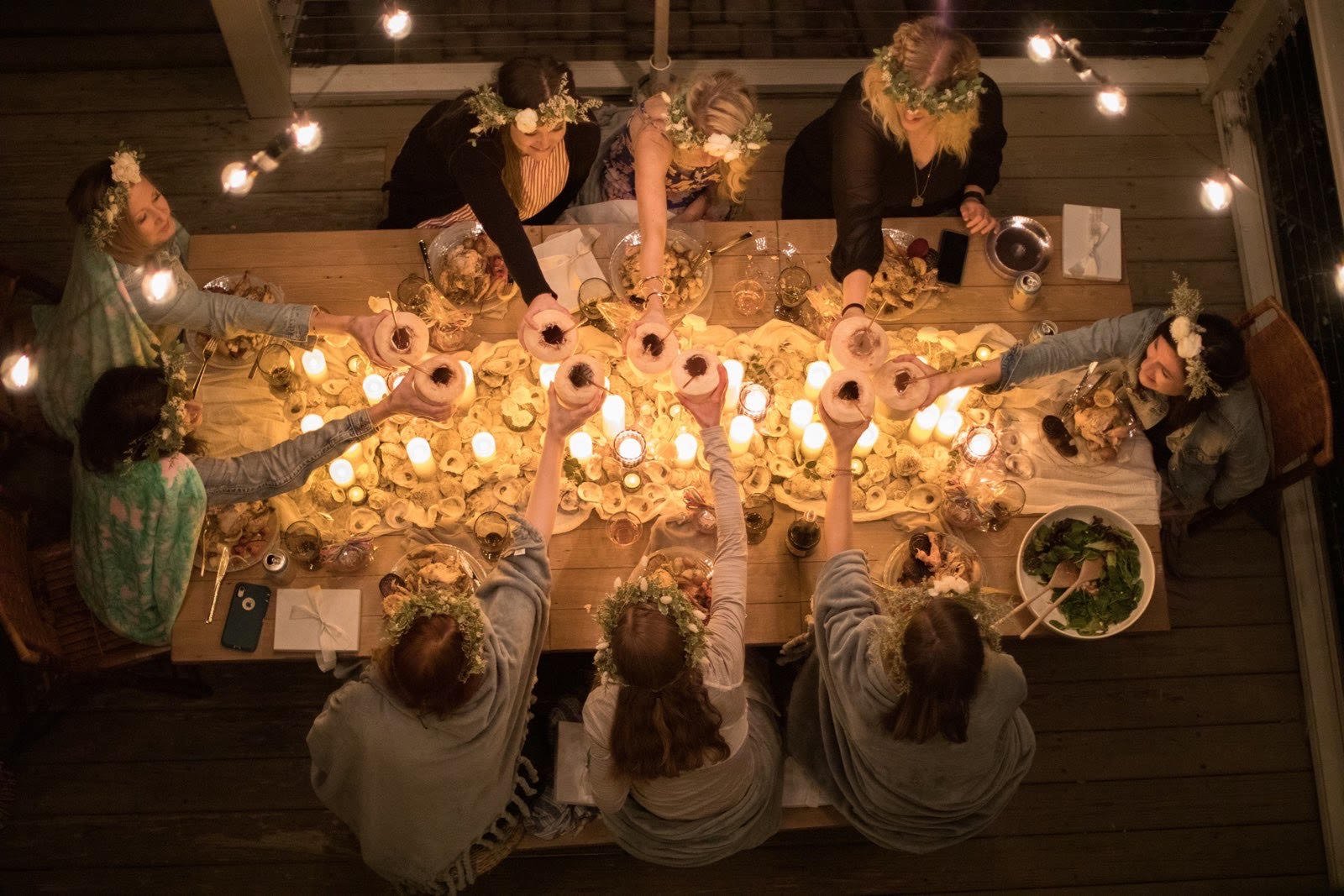
Heaven is Here
I often recall how my expectancy of Christ’s return was so strong in the immediate months following Doug’s suicide. I looked to the clouds and listened for the trumpets on my drive to work each day. In my mind, God would never ask me to hold this much pain for long. Surely His plan was to remove me from it. He would pluck me up out of this story and we would all feast at the great banquet before much time passed.
In the grand scheme of things this is true. This life is indeed short. The trials we face are certainly “light and momentary.” When every sad thing is made untrue, I believe to my core that these struggles and heartaches will feel like a mist.
It is also true that we serve a God who enters the darkest places. He brings Heaven down to us. He comes near. Immanuel. God is with us. He is with us right now and it changes everything. It may not change the way we feel, but don’t miss it. He is here and it impacts the story tremendously. Heaven is here.
